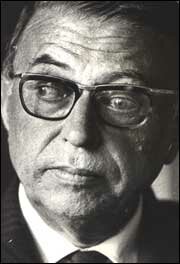



Jean-Paul Satre
The heroes of Jean-Paul Sartre's novels found freedom only in the privacy of self-determination and death |
Media Literacy Vs Critical Thinking DifferencesYou might think media literacy and critical thinking mean the same thing, but they each serve unique purposes. While both help you navigate the flood of information around you, one sharpens your skills for decoding news and social media, and the other hones your ability to analyze any argument or claim. Understanding the differences isn’t just academic—it can actually change how you engage with the world. So, what really sets these skills apart? Defining Media Literacy and Its Key ComponentsMedia literacy refers to the skills and competencies required to access, analyze, and evaluate information across various formats, a crucial element in our information-rich society. It involves the ability to identify credible media sources, assess the reliability of content, and recognize potential misinformation or bias. Individuals proficient in media literacy engage in active critical thinking rather than passively consuming media, allowing them to question and interpret the information they encounter. Enhancing your media literacy skills can facilitate better access to information and improve evaluative capabilities, which are essential for participating in democratic processes. Furthermore, media literacy fosters effective communication, allowing for articulate self-expression that's informed and considerate of responsible citizenship. Understanding Critical Thinking and Its Core ObjectivesCritical thinking is a discipline that emphasizes the evaluation of statements, arguments, and evidence through the use of reasoning. It transcends mere absorption of information, requiring active engagement in the assessment of sources, underlying assumptions, and the logic presented. This skill enables individuals to scrutinize claims rather than accepting them at face value, employing reasoning methods that may include informal logic or the scientific method. The primary objective of critical thinking is to facilitate the formation of rational beliefs that are crucial for effective decision-making. This process is distinct yet interconnected with media literacy, which focuses on the interpretation of media content. While media literacy aids in understanding the messages conveyed through various media, critical thinking ensures that beliefs aren't only truthful but also practical, fostering informed participation in social discourse. Comparing the Skills: Media Literacy Vs Critical ThinkingBuilding on the foundation of critical thinking, it's essential to delineate how its skills both align with and diverge from those developed through media literacy. Critical thinking involves evaluating arguments and assessing reasoning across various contexts. In contrast, media literacy skills focus specifically on the ability to access, analyze, and evaluate media content, which equips individuals to identify biases and misinformation. While both areas necessitate questioning assumptions and applying critical reasoning, media literacy particularly prepares individuals for civic engagement and the interpretation of current events as conveyed through media. Critical thinking, on the other hand, encompasses a broader range of applications, extending to decision-making and reasoning that goes beyond media messages. This distinction highlights the interplay between both skill sets while underlining their unique contributions to informed participation in society. The Role of News Literacy in Modern SocietyAs digital content increasingly permeates everyday life, news literacy has become a crucial skill for individuals navigating the contemporary media environment. News literacy involves the capacity to analyze, interpret, and critically assess the information presented by mass media. This includes recognizing potential biases, identifying credible sources, and protecting oneself from misinformation. The significance of news literacy extends beyond personal benefit; it enhances an individual's comprehension of current events and bolsters civic engagement. By fostering an appreciation for diverse perspectives, news literacy supports the ability to make informed decisions and contribute constructively to public discussions. Consequently, improving one's media literacy is essential for fulfilling an engaged and responsible role in a democratic society. Effects of Media Illiteracy and Poor Critical ThinkingWhile possessing strong news literacy skills enables individuals to critically interpret information, the absence of these skills can have significant negative effects. Media illiteracy, coupled with inadequate critical thinking, increases vulnerability to misinformation and disinformation, potentially leading to the adoption of harmful beliefs and behaviors. Young people, in particular, are at an elevated risk; they might be more susceptible to scams or might participate in dangerous online challenges. Without a foundation in information literacy and a healthy level of skepticism, individuals may misinterpret credible news sources or overlook essential details. This can influence their decision-making processes and diminish overall civic engagement. Furthermore, the interplay of weak media literacy and insufficient critical thinking skills can contribute to societal polarization and hinder the ability to identify manipulative media agendas. Addressing these gaps in knowledge is crucial for fostering informed citizenry and promoting healthy discourse. Developing Essential Skills for Informed Media ConsumptionDeveloping essential skills for informed media consumption involves learning to analyze messages presented in various formats, including news articles, advertisements, and social media content. Media literacy, combined with critical thinking, facilitates the identification of bias, the detection of misinformation, and the evaluation of the credibility of different media sources. These skills enhance one's ability to interpret media messages effectively, fostering ethical consumption and responsible engagement. By questioning established assumptions and considering a range of viewpoints, individuals can make decisions based on evidence rather than being swayed solely by persuasive tactics. As a result, these skills are integral to navigating complex media environments, enabling active participation in democratic processes and informed decision-making. Engaging with media critically not only contributes to personal understanding but also supports a more informed public discourse. ConclusionAs you navigate today’s complex media landscape, remember that media literacy and critical thinking are both essential—but they serve different purposes. Media literacy helps you analyze, question, and interpret media messages, guarding you against misinformation. Critical thinking equips you to evaluate arguments and make rational decisions in all aspects of life. By honing both skills, you’ll empower yourself to make informed choices and become a more responsible, engaged participant in society. |